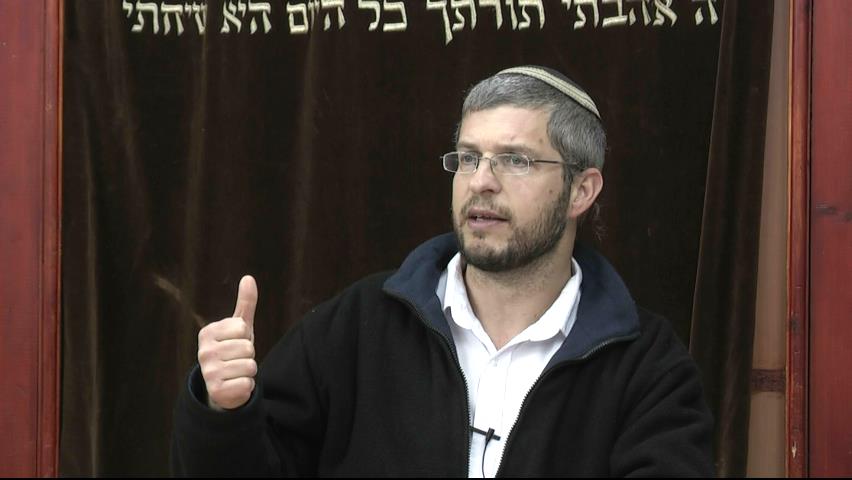- Library-Sifria
- Prayer
8
7.Days on Which Tachanun Is Not Recited
The Nefillat Apayim prayer is one that expresses sorrow concerning our errors and shortcomings, which prevent us from standing before Hashem. Instead, we fall on our faces. For that reason, it is not proper to recite it on days of joy. Since, in its essence, the Tachanun prayer is voluntary, it is therefore customary not to recite Tachanun even on days that are deemed uncertain as to whether or not they should be defined as days of joy (the sources for these laws can be found in Shulchan Aruch 131:6-7 and in the commentaries).
On the following days, Tachanun is not recited: Shabbat, Festivals, Chol HaMo’ed, and Rosh Chodesh. The remaining days are presented in the order of the calendar year: Shacharit of Erev Rosh HaShanah; Shacharit of Erev Yom Kippur; from the 11 th of Tishrei until the end of the month of Tishrei, since those days surround the Festival of Sukkot; Chanukah; Tu BiShvat; the two days of Purim, and in leap years also on the 14 th and 15 th of Adar I; the entire month of Nisan, since most of it possesses sanctity, for the dedication of the Tabernacle was held in the beginning of the month and the holiday of Pesach follows; the 14 th of Iyar, which is Pesach Sheni; Lag BaOmer; from Rosh Chodesh Sivan to the 12 th of Sivan, since the supplementary sacrifices for Shavuot were offered until that time; Tish’ah B’Av (either because of mourning or because it is called a mo’ed); and Tu B’Av. Additionally, at the Minchah service preceding all these days, Tachanun is not recited, except for Minchah of Erev Rosh HaShanah and Erev Yom Kippur, when many people recite Vidui then, but not Tachanun.
Today, ever since Hashem began to bring forth our redemption, Tachanun is not recited on Yom HaAtzma’ut (Israel’s Independence Day), and on the 28 th of Iyar, Yom Yerushalayim (Jerusalem Liberation Day), nor at Minchah before each of them.
8.Chatan, Ba’alei Brit, and Other Ba’alei Simchah
Tachanun is not recited in a minyan in which ba’alei simchah (those celebrating a joyous mitzvah celebration) are praying. Therefore, Tachanun is not recited in a minyan in which a chatan (groom) within his seven days of festivity is praying. However, in Shacharit and Minchah before his wedding, Tachanun is recited, although if Minchah is prayed close to the ceremony at the wedding hall, Tachanun is not recited. 8
Similarly, in a minyan in which one of the ba’alei habrit is praying, Tachanun is not recited. The ba’alei habrit are: the father of the baby being circumcised, the mohel, and the sandak. This exemption lasts from the morning until the celebration meal (seudah); that is, if the brit is held in the morning, Tachanun is not recited in the Shacharit service. If the brit is held after Minchah, Tachanun is omitted in both Shacharit and Minchah (Mishnah Berurah 131:22; and see Piskei Teshuvot 19).
Not only in a minyan in which one of the ba’alei habrit is praying is Tachanun not recited, but even in the synagogue in which the brit is held, Tachanun is not recited. In a building in which there are a number of prayer halls, Tachanun is omitted only in the particular hall in which the brit will be held. 9
Bar Mitzvah: many are accustomed not to say Tachanun in a minyan in which a youth who is reaching the age of mitzvot on that day is praying, though some do recite it.
Pidyon HaBen: many are accustomed not to recite Tachanun in a minyan in which the father of the son is praying, yet some do.
Likewise, in a prayer service adjoined to the ceremony of a conclusion of a tractate (siyum), or the presentation of a Torah scroll (hachnasat sefer Torah), many are accustomed not to recite Tachanun, though some do. 10
We already learned that when there is doubt as to whether or not to say Tachanun, the correct way to practice is not to recite it (as brought in halachah 1).
On days of public celebration in memory of prominent Jewish rabbis and righteous people (Yahrtzeit or Hilulah), the opinion of the absolute majority of poskim is that it is necessary to say Tachanun, and that is the custom. The Chassidic poskim maintain that those who follow in the ways of a particular righteous person, engross themselves in his teachings throughout the year, and prepare a feast in his honor on the anniversary of his passing from this world, do not recite Tachanun on that day. However, on the remaining celebration days in memory of other righteous people, Tachanun must be recited. 11
When we need to wash our hands?
Chapter eight-part three
Rabbi Eliezer Melamed | 5775
The Role of the Kohanim
Chapter Twenty-Part Four
Rabbi Eliezer Melamed | 5775
Torah Reader Order
Chapter Twenty Two-Part Two
Rabbi Eliezer Melamed | 5775
Barchu and End of the Prayer
Chapter Twenty Three-Part Three
Rabbi Eliezer Melamed | 5775

Shehecheyanu, Clothes, and Renovations During Sefira
Rabbi Daniel Mann

Some Contemporary Bishul Akum Curiosities
Rabbi Yirmiyohu Kaganoff | 5769

Centrality of Eretz Yisrael in Judaism
Rabbi Ari Shvat | 5769

Shehecheyanu, Clothes, and Renovations During Sefira
Rabbi Daniel Mann

P'ninat Mishpat: Unsuccessful Transfer of Yeshiva – part IV
based on ruling 82138 of the Eretz Hemdah-Gazit Rabbinical Courts
Beit Din Eretz Hemda - Gazit | Nisan 5784














